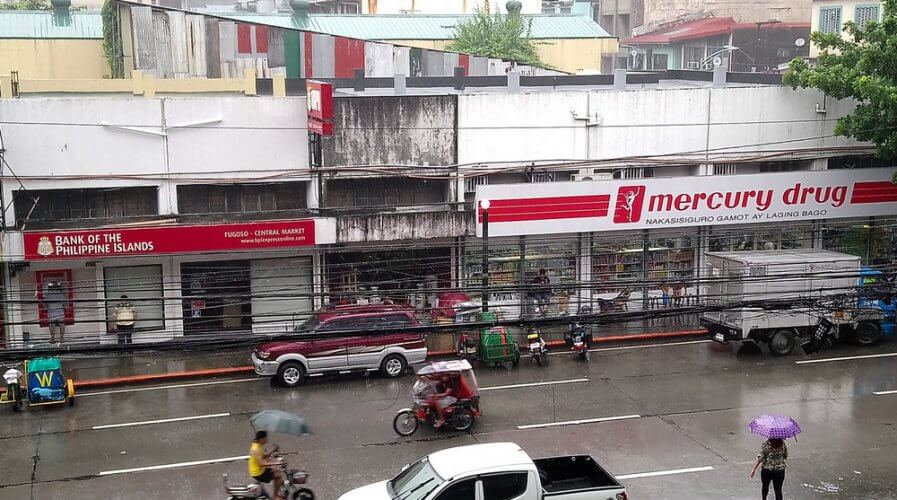
Pharmacies in the Philippines need more transparency. Source: Shutterstock
Using tech to bring transparency to Philippines’ pharmacies
REGULATORS are seeking more transparency and control when it comes to areas of business and commerce that impact the masses — in today’s day and age.
Public health is one of those areas, and governments are demanding more information on how and what drugs their residents use.
In the Phillippines, the country’s 105 million people are served by 15,000 registered pharmacies — all of whom keep paper records of the prescriptions that they fill.
“But paper records are of no use to anyone — neither the pharmacies nor the regulators” exclaimed mClinica CEO Farouk Meralli in an exclusive interview with Tech Wire Asia.
Recently, the Philippines adopted a law requiring all pharmacists to use a new platform called the Electronic Drug Safety System (eDSS), developed by mClinica.
Pharmacists will use their smartphones to photograph each prescription they fill and upload it to the eDSS, which uses artificial intelligence to digitize the prescription and send the data to a cloud-based database, enabling real-time public health insights. Nearly 300 million prescriptions will be digitized every year.
The eDSS pilot in 2016 demonstrated the system’s power to reveal previously hidden trends. For example:
Tuberculosis (TB) patients are supposed to take six months of daily antibiotics, but data from Manila revealed that one in five patients on tuberculosis medicine purchased just one tablet.
This meant that unless they were visiting the pharmacy every day, they were severely rationing their medication, increasing the risk of treatment failure and antimicrobial resistance.
The Philippines has one of the world’s highest burdens of TB and one of the highest rates of multi-drug resistant TB, which the eDSS data helped explain.
As the Philippines FDA implements the system across the country, health officials will have access to a comprehensive national health database for the first time ever.
“When the data is held in paper form, as it has been for the past several decades, you can’t produce insights. On the other hand, digitizing it helps to understand the country’s health, make high-level decisions that can be followed up with ground level execution, and ensures everyone benefits — including the people,” explained Meralli.
The potential for insights in all areas of disease limitless. And as the first country in Southeast Asia to fully digitize all patient drug data, the Philippines is leading the region in harnessing technology to rethink public health.
“By connecting pharmacists in Southeast Asia, and enabling them to share information, we know we could gain insights that could drive better health programs and policies,” explained Meralli.
Obviously, a conversation about digitizing data in today’s day and age will bring up the topic of security. However, Meralli is very clear that there are significant checks and balances in place to ensure that data is never misused.
“First, no personally identifiable data is collected. Second, the regulator specifies very clearly how the data we collect can be used,” explained Meralli — whose company is funded by impact investment venture capital funds such as Unitus Impact who have a strong governance structure in place to monitor the actions of their investee companies.
Truth be told, the company isn’t looking at the eDSS system it helped develop to earn it any revenues — only credit for being the technology partner to the regulator and the industry. It hopes the effort will help bring other products into the limelight, products that mClinica is hoping will help transform the market and industry.
“We built this just because we could, because it had to be done — it was the right thing to do,” said a 32-year old Meralli, who is excited about the prospects that the pharmaceutical market in Southeast Asia offers.
READ MORE
- Strategies for Democratizing GenAI
- The criticality of endpoint management in cybersecurity and operations
- Ethical AI: The renewed importance of safeguarding data and customer privacy in Generative AI applications
- How Japan balances AI-driven opportunities with cybersecurity needs
- Deploying SASE: Benchmarking your approach




